

The history and evolution of capitalism - exploring the polycrises inherent in our contemporary economic system!
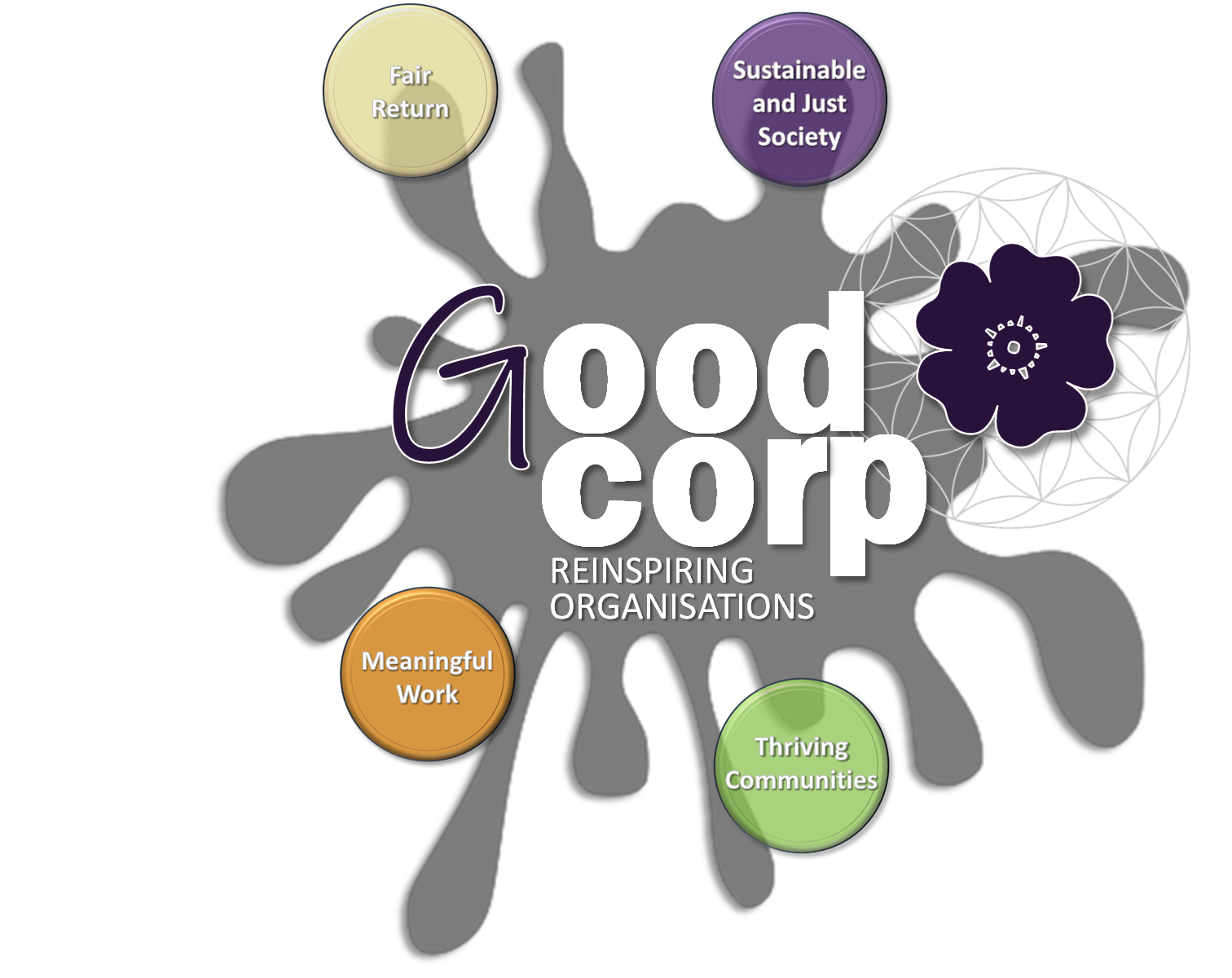
GETTING READY
CAPITALISM IN CRISIS: OUR WORLD IS IN TROUBLE
Before embarking on the journey, please read the Good Organisations (draft) manifesto to familiarise yourself with the concept.
the good organISations manifesto (Click on the icon for pdf)
In this article we argue that a more fundamental change in how we think about work and how we design organisations is necessary. We build on neo-Aristotelian virtue ethics and suggest that a shift towards “eudaimocracy” might help to craft organisations that foster “organisational aliveness” and contribute positively to society. Drawing upon moral philosophy, sociology, complexity science and positive psychology we start to develop a set of principles and practices that could pragmatically bridge business ethics and management. In this context, we especially highlight the need to revise institutional governance, establish virtuous communities and develop practical wisdom and agency across the organisation. Using the concrete example of traditional HR processes, we examine how a novel approach could help to foster individual and collective flourishing and more radically address some of the shortfall of previous approaches.
Jump to
PLEASE NOTE THIS PAGE IS CURRENTLY UNDER CONSTRUCTION
The Hunt for Good Organisations Commences!
Learning Journey
Core Concepts (click icons to jump to discovery)
Capitalism is Failing (1)
Please reflect for yourself: What is the problem with Capitalism?
Root Causes of the Crises of Capitalism (2)
Reflect on the root causes of this alleged failure. Why doesn't the "invisible hand" appear to work effectively? How does capitalism contribute to crises like climate change and growing inequality, both within and across countries?
Corporate Social Responsibility (CSR) Has Not Worked (3)
Critiques of capitalism and neoliberalism are not new. Why is business failing to address the problems?
How Could Our Economy Improve Beyond Capitalism?
Based on all of the above, note down in your journal some personal reflections. What would you suggest should we do?
Our Perspective On Core Concepts
“We hold these truths to be self-evident, that all people are created dependent — on each other, our earth, and its climate — endowed with the inalienable responsibility to maintain justice, liberty and affiliation for all.” ― Henry Mintzberg
Framing The Transformation Context: Business As A Force For Bad
In the early stages of our exploration into exemplary organizations, we embarked on a quest to pinpoint some of the most pressing concerns within contemporary capitalism. Our intent was to glean valuable lessons from the current shortcomings and challenges, seeking to understand how we might mitigate the associated suffering. To delve deeper, we conducted interviews to examine the crises of capitalism and their underlying root causes. Simultaneously, we delved into a plethora of concepts and proposals aimed at adjusting, reforming, or even revolutionizing our existing economic system.
Click on each concept heading to learn more...



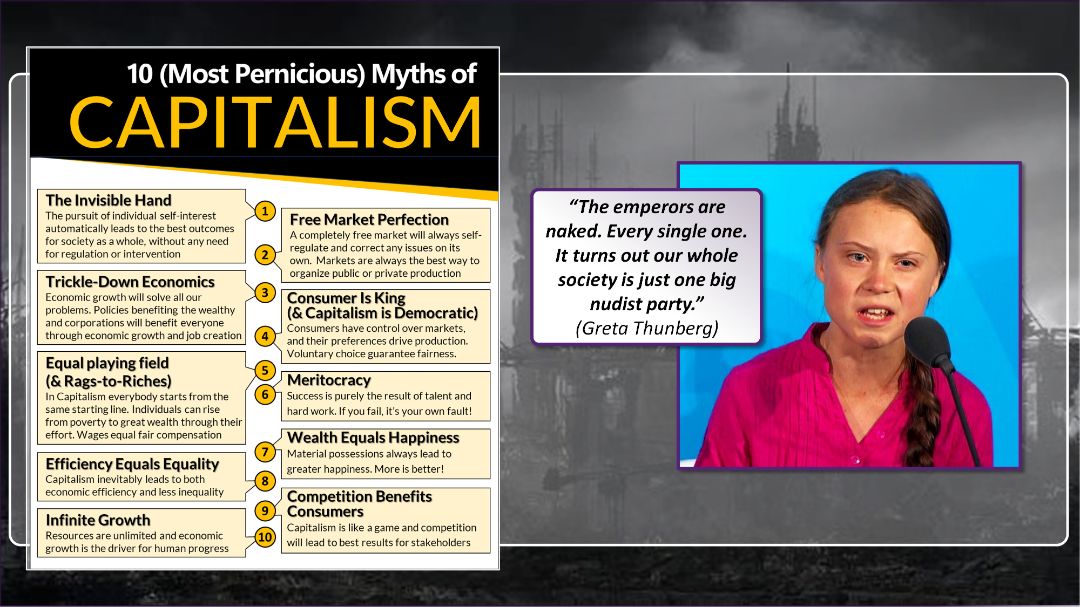
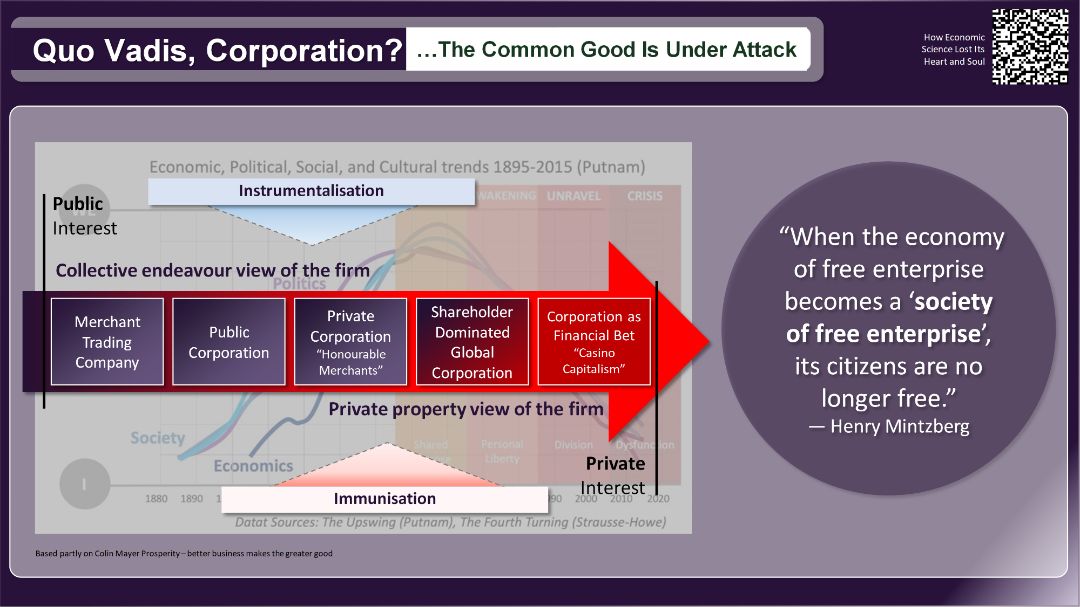

Below you can also find a few blog posts that dive into our evolving thoughts around these concepts
“Decades of financial capitalism have amplified the ‘invulnerable’ work culture in large global enterprises, where every vulnerability must be ejected.” ― Luigino Bruni
Discover New Puzzle Pieces of Wisdom On A Search For Eureka Moments!
Materials marked in dark purple are foundational. Those flagged in light purple are for in-depth exploration.
Core Concept 1: Capitalism is failing
Core Concept 1: Capitalism is failing
Please reflect for yourself: What is the problem with Capitalism?
(1) What are the major global crises we are facing these days?
(2) How does capitalism contribute to or exacerbate them, even if it is not their direct cause? Can you provide specific examples?
Core Concept 2: Root Causes
Core Concept 2: Root Causes of the Crises of Capitalism
Reflect on the root causes of the failures of Capitalism. Why doesn't the "invisible hand" appear to work effectively?
1) Summarize what you have learned about the different root causes2) How does Capitalism contribute to the crises we have identified in the last section?
3) To what degree are these root causes intrinsic to a capitalistic system?
Core Concept 3: CSR Has Not Worked
Core Concept 3: Corporate Social Responsibility (CSR) Has Not Worked
Please reflect for yourself: Critiques of capitalism and neoliberalism are not new. Why is business failing to address the problems?1) What is CSR (and Corporate Sustainability)?
2) What are the reasons why CSR is not working?
3) Can CSR work within a Capitalistic system?
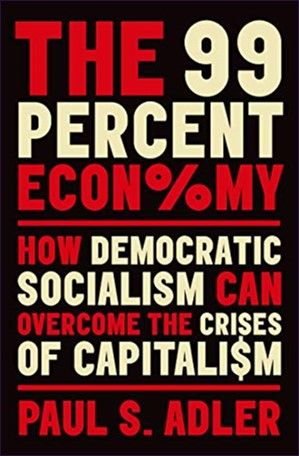
The 99 Percent Economy
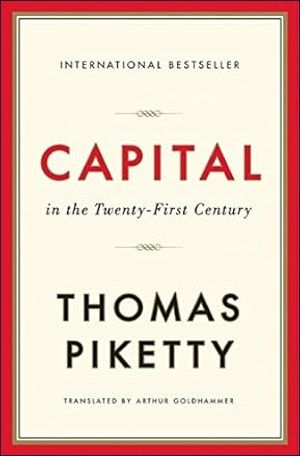
Capital in the Twenty-First Century
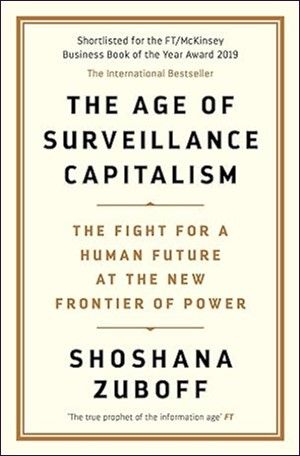
The Age of Surveillance Capitalism: The Fight for a Human Future at the New Frontier of Power: Barack Obama's Books of 2019
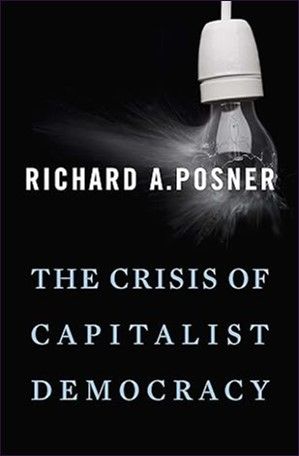
The Crisis of Capitalist Democracy
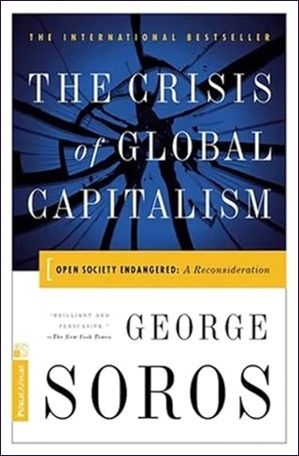
The Crisis Of Global Capitalism: Open Society Endangered
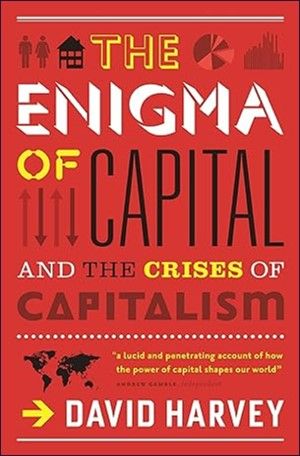
The Enigma of Capital: And the Crises of Capitalism
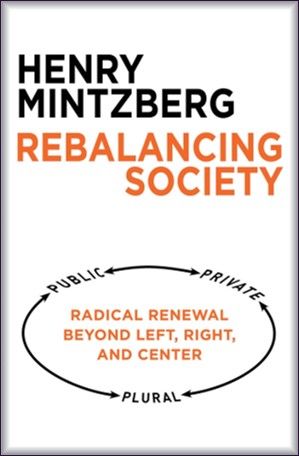
Rebalancing Society
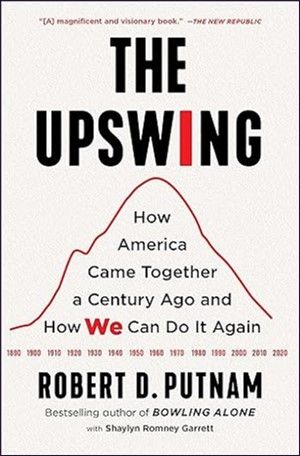
The Upswing: How America Came Together a Century Ago and How We Can Do It Again

Debt: The First 5,000 Years

Requiem for the American Dream: The 10 Principles of Concentration of Wealth & Power

A Brief History of Neoliberalism

The End of Alchemy

The Global Minotaur: America, Europe, and the Future of the Global Economy
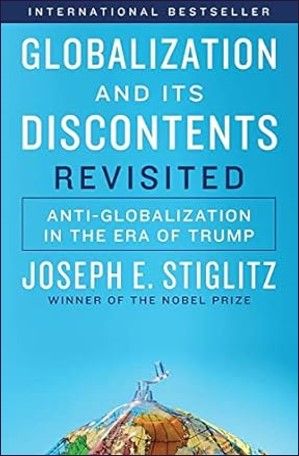
Globalization and its Discontents Revisited

The Affluent Society

Small Is Beautiful: Economics as if People Mattered

Black Skin, White Masks
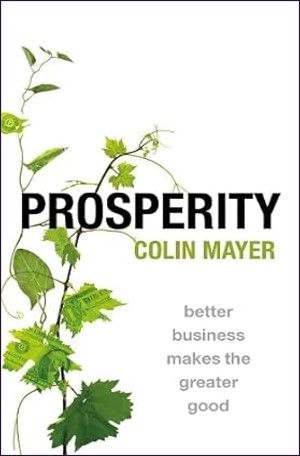
Prosperity: Better Business Makes the Greater Good

Capitalist Realism: Is There No Alternative?

The Corporation: The Pathological Pursuit of Profit and Power
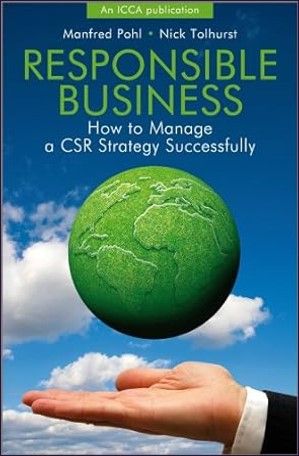
Responsible Business: How to Manage a CSR Strategy Successfully
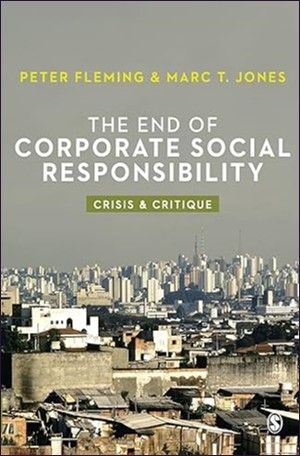
The End Of Corporate Social Responsibility
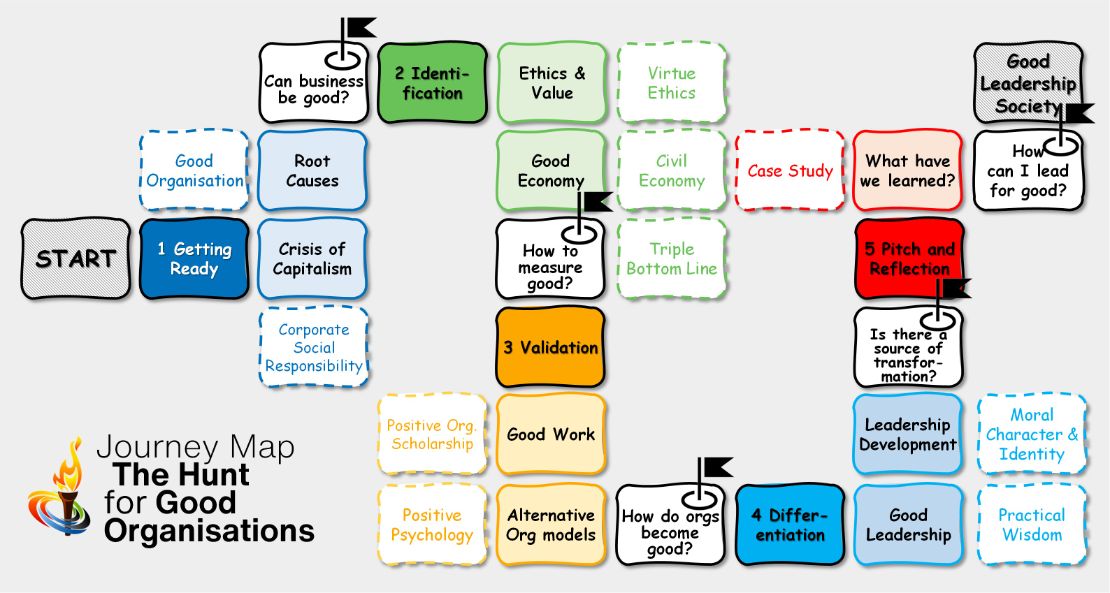




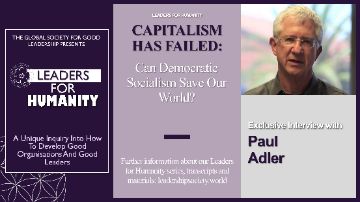
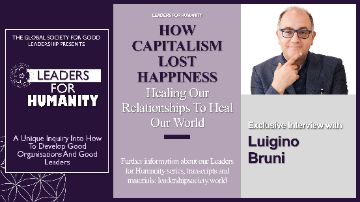
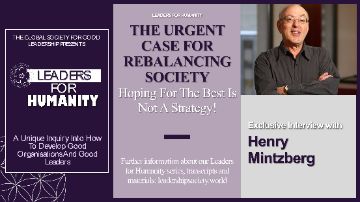
 .
.